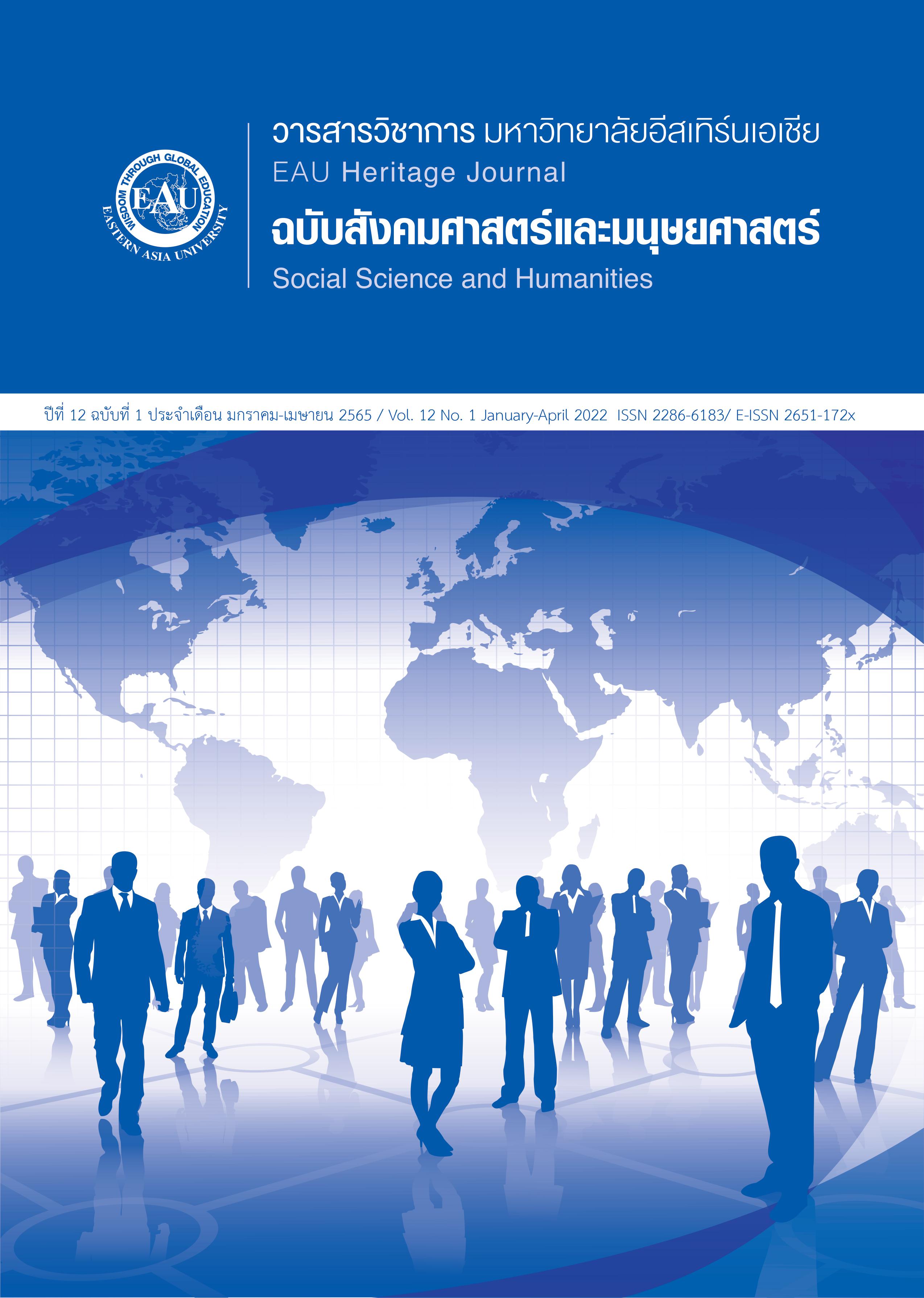The Impact of the COVID-19 Pandemic on Household Debt in Thailand
Keywords:
Household Debt, COVID-19 Pandemic, ThailandAbstract
This academic paper is a quantitative study to describe the impact of the Coronavirus 2019 (COVID-19) epidemic on Thai households’ debt. The data used in this study is from the Bureau of Trade and Economic Indices, the Ministry of Commerce, the Office of the National Economic and Social Development Council, and the Bank of Thailand. The period under study is between the first quarter of 2020 and the second quarter of 2021. This paper analyzed the quantitative data by using the least squares regression analysis (Ordinary Least Square; OLS).
The results showed that during the epidemic, from Q1 2020 to Q2 2021, the total household debt rose 5.2% compared to the pre-COVID-19 period. Thai households at risk of default increased by 2.74% during the pandemic and the pandemic crisis slowed household loans: loan growth declined 0.79%, compared to pre-COVID quarterly growth. These combined effects could lead to financial instability and lower consumption, further delaying recovery from the COVID-19 recession.





